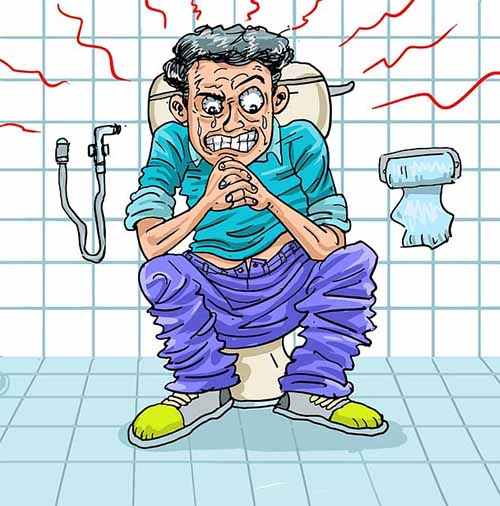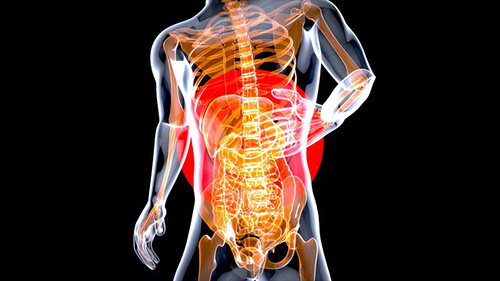Contents
Before answering the question (Can constipation cause fever?), let’s learn more about this condition. Constipation is a common gastrointestinal disorder characterized by infrequent bowel motions, difficulty passing stool, or both. It’s typically associated with irritation, swelling, and abdominal pain, but some worry it might also cause fever. Let’s go into the significance of this link.
Understanding Constipation

Various factors can cause constipation:
- A diet lacking in fiber
- Physical inactivity
- Medications (such as certain antacids, antihistamines, and opioids)
- Dehydration
- Underlying medical conditions like hypothyroidism or irritable bowel syndrome (IBS)
- Stress or emotional factors
Constipation and Fever: Direct Link?
Constipation is not the sole culprit in a high body temperature. In reaction to an infection or inflammation, the immune system often raises the body temperature. However, issues or conditions connected to constipation might also induce fever.
Scenarios Where Fever Might Accompany Constipation
- Fecal Impaction is a severe form of constipation in which a clump of feces hardens and cannot be passed through the rectum. Untreated fecal impaction can lead to a buildup of harmful germs in the gut and other digestive organs, which can cause fever under sporadic conditions.
- Diverticulitis: Diverticula are pouches that can grow in the colon’s lining and look like tiny, bulging sacs. Constipation raises the risk of infection and inflammation in these pouches. When this happens, it might cause diverticulitis, which can cause pain, nausea, and fever.
- Bowel Perforation: A scarce but possibly fatal result of prolonged constipation is bowel perforation or a hole in the colon wall. Peritonitis is a dangerous infection characterized by a high body temperature that can develop if feces leak into the abdominal cavity.

What To Do If You Have Constipation and Fever
If you are experiencing both constipation and fever simultaneously:
- Seek Medical Attention: There may be no causal link between the two, but a high or prolonged fever and chills call for medical attention.
- Stay Hydrated: Water can help loosen stool and restore fluids lost from a fever, so drinking lots of it is essential.
- Dietary Adjustments: Eat many fiber-rich foods, including fruits, vegetables, and whole grains. This may help facilitate regular bowel movements.
- Medication Review: Talk to your doctor about the medicines you’re taking. Some drugs may cause or exacerbate constipation.
Can Constipation Cause Fever? – A Deeper Dive
The Physiology of Fever
A fever is the body’s normal reaction to illnesses caused by bacteria or viruses. Inflammation produces pyrogens, which signal the hypothalamus (the body’s thermostat) to raise the temperature.

Constipation: Beyond the Basics
Beyond the previously mentioned causes, several factors can lead to constipation:
- Travel or lifestyle changes: When you change your routine, it might throw off your bowel habits.
- Pregnancy: The digestive system may slow down because of hormonal changes and a larger uterus.
- Aging: Constipation may become a problem as we age because of the slowing metabolism.
Further Interconnections Between Constipation and Fever
- Appendicitis: Appendicitis is an inflammation and infection caused by food stuck in the appendix. Low-grade fever and discomfort in the lower right abdominal region are possible symptoms.
- Anal Fissures or Abscesses: Anal fissures and abscesses are infectious, pus-filled holes that can form on or around the anus due to chronic constipation. Fever is a possible symptom of these.
- Rectal Prolapse: When the rectum protrudes past the anus due to chronic constipation, it can occasionally get infected, leading to a high temperature.
Preventing Complications from Constipation
- Regular Exercise: Increased intestinal muscle contractions from exercise can facilitate defecation.
- Adequate Fluid Intake: Besides water, herbal teas, and other fluids can help with excretion.
- Probiotics are suitable for your digestive tract and may even aid with constipation.
When to Be Concerned
- Persistent Symptoms: Constipation and fever that last more than a few days require medical attention.
- Additional Symptoms: Some other warning signs to look out for include throwing up, severe stomach discomfort, blood in the stools, and sudden and unexplained weight loss.
Constipation probably won’t bring on a fever by itself. Still, the body is connected, so one issue can set off or exacerbate another. Seek professional medical help if you are unclear on how to read your symptoms. Constipation and fever are two symptoms that may be avoided with good health habits; as the adage goes, “Prevention is better than cure.”
DISCLAIMER: All content on this website is presented solely for educational and informational objectives. Do not rely on the information provided as a replacement for advice, diagnosis, or treatment from a qualified medical expert. If you are pregnant, nursing, or have any preexisting medical concerns, talk to your doctor before using any herbal or natural medicines.
References
- Mayo Clinic: https://www.mayoclinic.org/diseases-conditions/constipation/symptoms-causes/syc-20354253
- Cleveland Clinic: https://my.clevelandclinic.org/health/diseases/4059-constipation
- Johns Hopkins Medicine: https://www.hopkinsmedicine.org/health/conditions-and-diseases/constipation
- https://www.hopkinsmedicine.org/health/conditions-and-diseases/fever
- MedlinePlus: https://medlineplus.gov/constipation.html
- https://medlineplus.gov/fever.html
